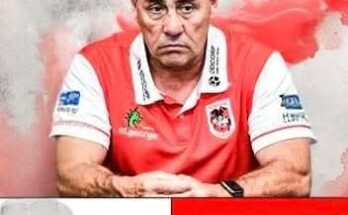Kodai Senga’s journey with the New York Mets has been a fascinating and, at times, unexpected story. The right-handed pitcher, who came to the Mets with significant fanfare and high expectations, faced a challenging moment early in his tenure when the team decided to send him down to the minors. What’s particularly notable about this episode is how the entire process unfolded—not with friction or frustration, but through open, honest communication between Senga and the Mets’ front office and coaching staff. This transparent dialogue allowed Senga to accept the demotion without issue, a testament to his professionalism and mindset, as well as the team’s approach to managing a high-profile player adapting to Major League Baseball.
Kodai Senga’s background is one that naturally set high expectations. Before joining the Mets, Senga had built a strong reputation as a dominant pitcher in Japan’s Nippon Professional Baseball (NPB) with the Fukuoka SoftBank Hawks. Known for his powerful fastball, sharp slider, and deceptive delivery, Senga was seen as one of the top pitchers in Japan. His transition to MLB was eagerly anticipated by Mets fans and analysts alike, hoping he could bolster the rotation and provide much-needed stability.
However, the move from Japan to MLB is never easy, even for the most talented players. The adjustment involves not just a change in competition level, but also cultural shifts, language barriers, and the challenge of adapting to different styles of play and training regimens. Senga, despite his talent, faced these challenges head-on, and early on, the Mets and Senga themselves recognized that a step back to the minors might be necessary to refine his approach and rebuild his confidence.
What stands out about this situation is the way the Mets handled the communication. According to reports from SNY’s Andy Martino, the dialogue between the player and the team was very open and straightforward. This wasn’t a case of the team quietly making a decision and expecting the player to simply comply. Instead, there was an honest discussion that helped Senga understand the reasons behind the assignment and what the team hoped to accomplish. This transparency fostered trust, and Senga accepted the assignment without hesitation or resistance.
This type of communication is crucial in professional sports, especially with international players who may be experiencing MLB for the first time. It helps mitigate feelings of frustration or confusion, ensuring the player knows the team’s intentions are geared toward long-term success rather than punishment or demotion as a negative reflection on their abilities. For Senga, this openness likely helped him maintain a positive attitude and remain focused on his development.
The decision to send a highly touted international signing down to the minors is never taken lightly by any organization. The Mets clearly weighed their options carefully before making this move, recognizing that while it might be disappointing for fans and for Senga himself, it was ultimately in the best interest of his growth and the team’s success. By communicating openly, the Mets also demonstrated respect for Senga as a professional and a person, acknowledging the difficulty of the transition and partnering with him in the process rather than simply dictating terms.
For Senga, accepting the assignment without issue shows maturity and resilience. Instead of reacting emotionally or viewing it as a setback, he embraced the opportunity to improve and adjust. This attitude is essential for any athlete, but especially for pitchers, who often face steep learning curves and must adapt constantly to different hitters and conditions. The minors provide a controlled environment where pitchers like Senga can work on mechanics, experiment with pitch sequences, and regain their confidence away from the intense spotlight of the major leagues.
Moreover, Senga’s willingness to accept the demotion signals his commitment to the Mets and his determination to succeed in MLB. Many international players could see a demotion as a sign that their dream is slipping away, but Senga’s approach illustrates his professionalism and dedication. By embracing the challenge and focusing on long-term goals, he sets a positive example for teammates and fans alike.
The Mets’ approach to this situation also reflects an evolving understanding within MLB organizations about how to manage international talent and young players more effectively. In the past, players might have been sent down abruptly, with limited explanation, causing friction and sometimes long-term damage to relationships. Today’s teams recognize the value of empathy, clear communication, and player support systems. This includes translators, cultural liaisons, and mental health resources to help players navigate the pressures of professional baseball in a foreign country.
In Senga’s case, the Mets likely utilized such support to ensure he felt comfortable throughout the process. This comprehensive approach not only benefits the player but also the team by fostering loyalty and maximizing player potential. By helping Senga view the minor league stint as a strategic step rather than a failure, the Mets invested in his future contributions to the major league roster.
Senga’s case also highlights the realities of pitching in MLB, where even the best pitchers can struggle initially. The adjustment to MLB hitters, who are often more patient and better at exploiting weaknesses, can be harsh. Pitchers must constantly refine their approach, often under the scrutiny of coaches, analysts, and fans. Having the chance to reset in the minors can be invaluable for diagnosing issues and making the necessary adjustments.
The Mets’ transparency may have also helped alleviate pressure on Senga. Knowing that the team’s decision was based on development rather than punishment allows the player to focus on improvement without the emotional burden of feeling rejected. This mindset can lead to quicker rebounds and better performances once the player returns to the majors.
Furthermore, this episode with Senga provides insight into the Mets’ organizational culture. It suggests a front office and coaching staff that prioritize open communication and player development. Rather than viewing players as commodities to be moved around, the Mets seem invested in nurturing talent through honest dialogue and supportive strategies. This approach can build a positive team environment where players feel valued and understood.
Looking ahead, the hope for the Mets and their fans is that Senga’s time in the minors serves its intended purpose—helping him adjust, build confidence, and return to the major league mound as a stronger, more effective pitcher. His initial struggles and subsequent assignment should not overshadow his potential or his contributions once he acclimates fully. In fact, many successful MLB pitchers have experienced similar detours early in their careers.
It will be interesting to monitor how Senga’s journey progresses. The openness that characterized his demotion may also set the tone for his future interactions with the team. If the Mets continue to maintain this transparent communication, it could help Senga thrive in the long run. Success in MLB often depends not just on talent but also on the relationship between player and organization—and in this case, that relationship seems to be founded on mutual respect and clear communication.
In conclusion, Kodai Senga’s experience with being sent to the minors by the Mets is a case study in effective communication, player management, and the challenges faced by international players transitioning to MLB. The Mets’ open dialogue with Senga, as reported by Andy Martino of SNY, allowed the pitcher to accept the assignment without issue and focus on development rather than frustration. This episode reflects well on both Senga’s professionalism and the Mets’ approach to player development. It underscores the importance of transparency and empathy in professional sports, especially when managing high-profile players navigating difficult transitions. As Senga continues to adapt and grow, both he and the Mets will likely benefit from this foundation of trust and communication.



